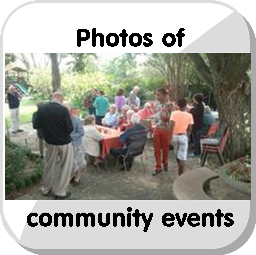|
The Gospel Study during February has begun an understanding of the Holy Spirit. When we read in John’s Gospel 14: 16 Jesus tells his intimate disciples that He will pray the Father to send another Comforter (Jon Madsen rendering of the Emil Bock translation). It may be a better translation to use the word Paraclete (which is a direct transfer into English from the Greek word). This means advocate, someone on your side who will speak up for you. The first Comforter to the disciples was the Christ. This Being, the Paraclete, can be described as the giver of spirit courage and the Spirit of Truth. John, in the first part of chapter 16, describes how the Spirit of Truth will call all of humanity to account. But, he also makes it clear that there is an intimate relationship between the Spirit of Truth and the Father in that he says that the Spirit will speak only what He hears, He does not speak out of himself.
Considering the Baptism in the Jordan we know that the Spirit descended from heaven like a dove and stayed connected with Jesus. From this we can understand that the incarnation of the Christ into a human being (Jesus) and the Christ-in-me in all human beings is possible only through the Spirit. The Holy Spirit makes possible the Christ connection to humanity. We hear in our Creed that it is the working of the Holy Spirit that prepared the son of Mary to be the bearer of the Christ. Thus, while Jesus speaks of the Holy Spirit only late in his ministry, the Holy Spirit was there, working before Christ incarnated. Turning to the writings of Luke in the Acts of the Apostles the arrival of the Holy Spirit is described in chapter 2. Michaël began this study by describing the twelve senses described by Rudolf Steiner, and how the human being from childhood into adulthood begins to engage with these senses. The first senses to become free in the life of a child in the ages before school are the senses of touch, wellbeing, movement and balance. Before puberty the senses of smell, taste, sight and warmth become free. The higher senses that only become free as the youth progresses to adulthood are hearing, speech, thought and the sense of the other. (In teens we clearly find that they almost stop hearing and speaking; this is the great frustration of parents, and when they begin to hear and speak again it is in a new way that was not present in childhood. This is what is meant by the senses becoming free.) In the first twelve verses of Acts chapter 2 the four higher senses are engaged in this same order: sound, speaking, thinking and finally, the other. The Spirit arrives like the sound of the rushing of a mighty wind. The Disciples begin to speak in a way that their words are comprehensible in every language. And the Spirit appears as tongues of fire – tongues of fiery speech. Those who hear begin to engage their thinking into what is occurring. Although the people present are from the far corners of the Roman Empire, they stand as one community in that they all hear the “great things of God” together. They can truly see the other. This introduction into a fuller understanding of the Holy Spirit will lead us into the writings of Paul in March. The Gospel Study asks that everyone engage their thinking with the Gospel writings and that the evening is more than a lecture but coming to grips with meaning through sharing of thoughts. Everyone is welcome to join at any time and there is tea, coffee and often biscuits provided to make the evening sociable as well.
0 Comments
Leave a Reply. |
Article Archives
December 2022
2023 - January to December
2021 - January to December 2020 - January to December 2019 - January to December 2018 - January to December 2017 - January to December 2016 - January to December 2015 - January to December 2014 - November & December 2013 - July to December 2013 - January to June 2012 - April to December Send us your photos of community events.
Articles (prefaced by month number)
All
|

 RSS Feed
RSS Feed